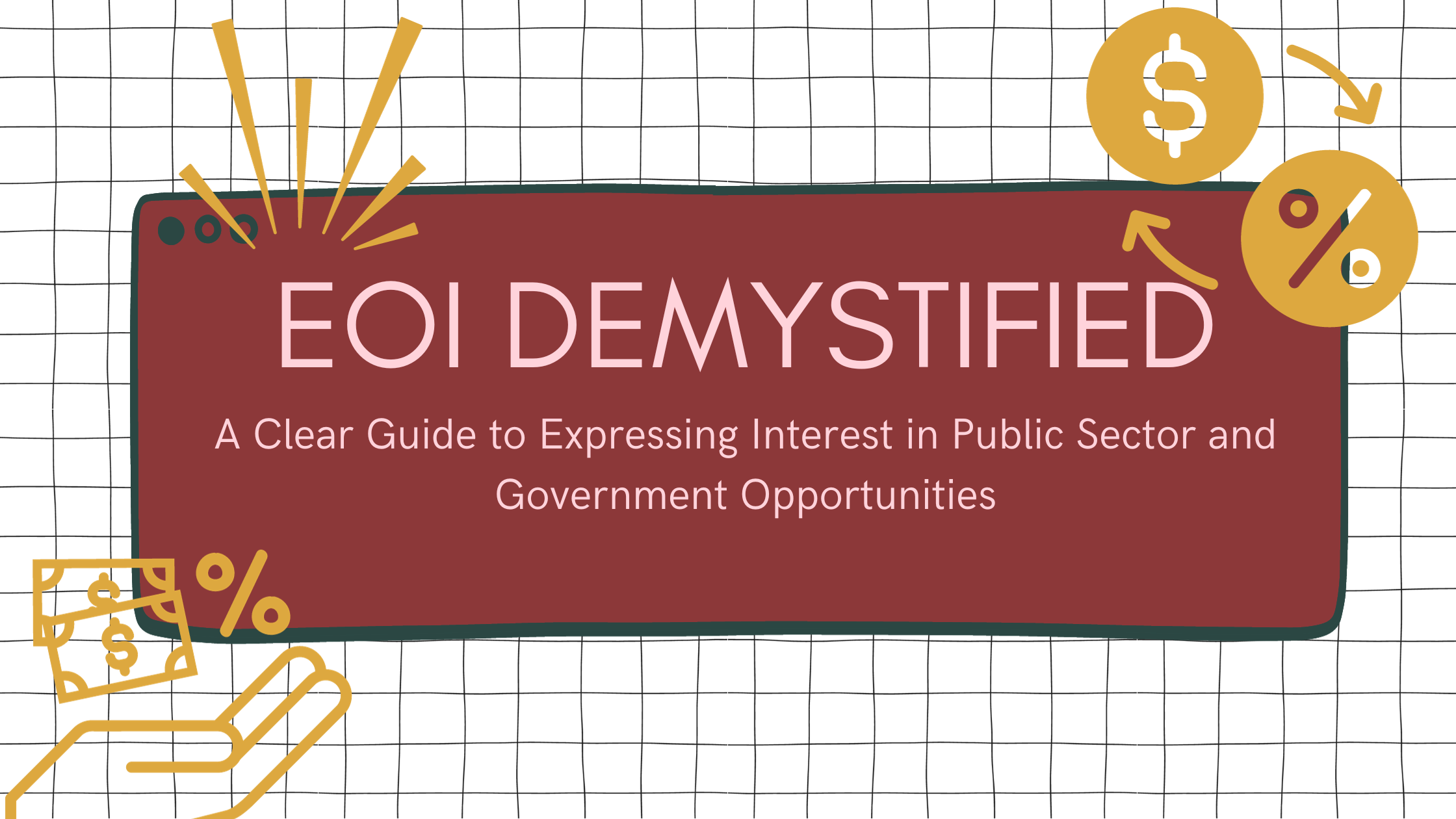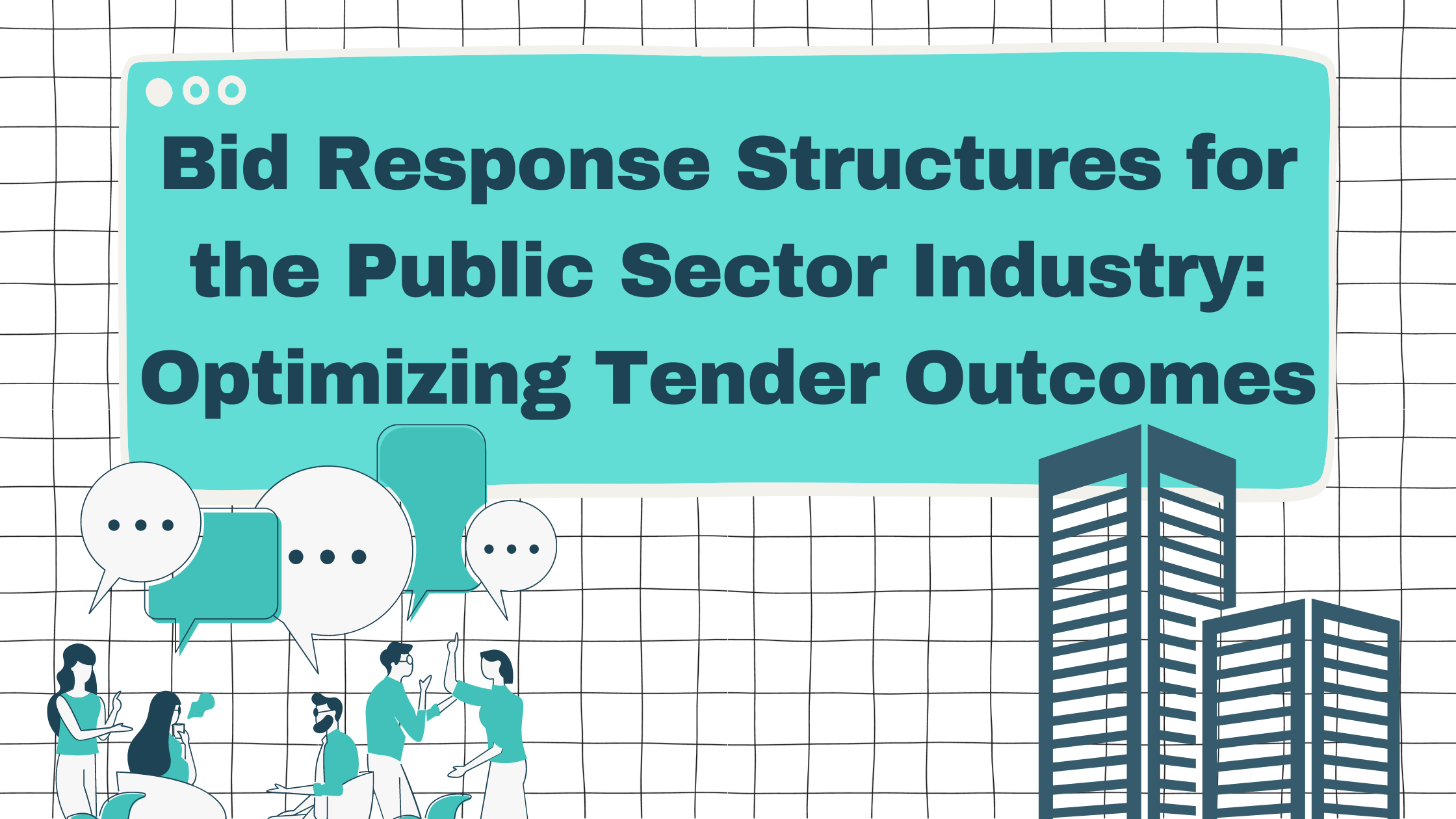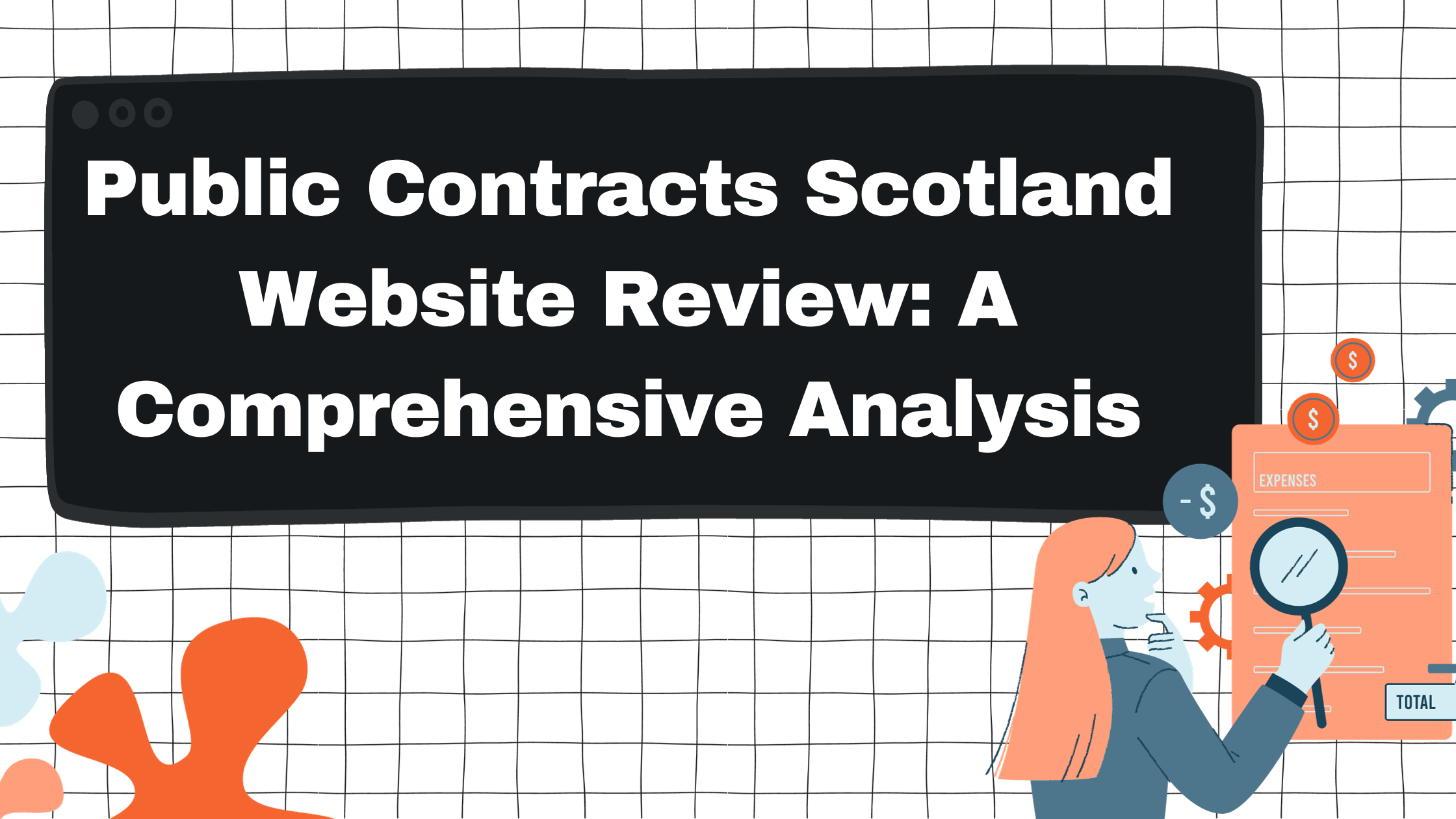Essential Guide to Proposal Writing Services and RFP Writing for Government Bids

Need Help with Your Bid?
Get in touch by filling out the form and one of our advisors will be in contact.
Contact UsWhat to Include in a Government Bid Request: Essential Elements for Success
When venturing into the realm of government contracts, understanding the intricacies of a bid request is crucial for your success. The government procurement process offers numerous tender opportunities, which can be pivotal for business growth and stability. Ensuring that you are thorough with your tender response is the foundation to potentially secure a contract with the public sector.

A government bid request is a structured document that outlines what the public sector entity is looking for. It's a map that guides you, the bidder, through their requirements and how they expect you to fulfill them. Preparing your tender response demands not only a comprehensive understanding of the request but also the inclusion of compelling supporting documentation that substantiates your ability to meet the contract's obligations.
Key Takeaways
- A thorough understanding of the bid request guides successful tender preparation.
- Comprehensive supporting documentation is essential to substantiate your bid.
- Meticulous attention to detail during submission can enhance post-submission prospects.
Understanding the Government Bid Request
When preparing your bid for a government contract, understanding the intricate details of the request is critical. Pay close attention to the eligibility criteria and tender process, and allocate sufficient time for thorough research and planning.
Eligibility Requirements
Your ability to participate in government tenders hinges on meeting specific eligibility criteria. These requirements may include business size, financial stability, and necessary certifications. Ensure you verify your compliance by carefully reviewing the guidance on how to bid for government contracts. Non-compliance with these criteria can result in immediate disqualification, so treat this step with the utmost seriousness.
Understanding the Tender Process
The tender process for government contracts involves several stages, from the initial Request for Tender (RFT) to the final awarding of the contract. Familiarize yourself with each step, which typically includes expression of interest, bid submission, and evaluation. The public sector procurement policy document outlines the process, emphasizing the necessity for value for money, which balances quality and cost.
Research and Planning
Begin your preparation by conducting in-depth research to understand the government's needs and tailor your proposal accordingly. Planning your response is crucial; start as early as possible to craft a thorough and compelling bid. Refer to sources like how to win government contracts for insights on developing a strong tender response. This phase is your opportunity to stand out by presenting a cohesive and well-thought-out plan that aligns with the government's objectives.
Preparing Your Tender Response
When approaching your tender response, it's essential to encapsulate your expertise, articulate the value you'll deliver, and precisely conform to compliance requirements. This structured approach can significantly enhance the quality score of your submission.
Crafting a Compelling Executive Summary
Your executive summary is your first opportunity to make an impression. Convey succinctly why your offer is the best fit, emphasizing how your experience aligns with the project requirements. Remember, clarity is key, so be bold and ensure every word serves a purpose.
Demonstrating Relevant Experience and Capability
In showcasing your experience and capability, provide concrete evidence of your past successes. Structure this section with bullet points for clarity:
- Highlight previous projects that mirror the scope or complexity of the tender.
- Detail the outcomes and how they cement your position as an ideal candidate.
Quality is as crucial as experience, so explain your quality control processes to underscore your capability to deliver consistently.
Price and Value Proposition
Your pricing strategy must balance competitive pricing with value. Utilize a table to present your costs transparently:
ItemQuantityUnit PriceTotal PriceExample Service/ProductX$Y.YY$Z.ZZ
Clarify the benefits you offer that justify your pricing, ensuring they understand the value they will receive for their investment.
Ensuring Compliance and Quality
Compliance with the tender's specifications is non-negotiable. Provide an itemized checklist to track mandatory requirements:
- Compliance with legal standards
- Adherence to industry regulations
- Submission of all requested documentation
Highlight how your proposals meet these thresholds without compromising on quality. A high quality score hinges on your attention to these details, so regard this as a top priority in your response.
Supporting Documentation

When preparing a government bid, it's crucial to include comprehensive supporting documentation. This shows your capabilities, builds trust, and validates your experience. Ensure your bid stands out by providing relevant case studies, testimonials, and official accreditations.
Providing Case Studies and Testimonials
Case studies demonstrate your past success and how you've effectively managed similar projects. Use clear, concise descriptions, highlighting measurable outcomes to support your claims. For instance:
- Project: Name of Project
- Client: Government Body or Private Sector
- Outcome: Achieved result (e.g., 20% cost reduction).
Incorporate testimonials from prior clients to bolster your case. Include their name, role, and a brief statement on how your service or product met or exceeded expectations.
Financial and Business Accreditations
Highlight your business's credibility by presenting your financial and business accreditations. These confirm your adherence to industry standards and financial stability, which are key considerations in the bidding process. Your accreditations might include:
- ISO Certifications
- Industry-specific awards or recognitions
- Financial statements endorsed by credible institutions
Include official logos where permissible, with the awarding body and the date of accreditation, ensuring your bid is current and compliant.
Submission and Post-Submission Process
When preparing your bid for a government contract, the submission itself and the subsequent procedures are critical. Your attention to detail and understanding of the evaluative measures can influence the success of your bid.
Proofread and Edit before Submission
Proofread: Before you submit your bid, it's imperative to proofread the document thoroughly. Look for any grammatical errors, typos, or inconsistencies that could undermine the professionalism of your submission. Edit: Make sure that every part of your bid aligns with the requirements stated in the Request for Quotation (RFQ). Ensure accuracy in your technical response and that your pricing structure is clear and justifiable.
Understanding the Review and Decision Process
Review: The evaluative process your bid will undergo usually includes a rigorous review by a panel of decision-makers. These individuals will assess your bid's responsiveness to the RFQ's stipulations. Feedback: You may or may not receive feedback, depending on the regulations governing the procurement process. If feedback is available, use it to refine future bids. Decision Maker: Bear in mind that the decision maker's role is to select the most competitive and compliant bid, not necessarily the lowest price offer. Your main objective is to demonstrate value and capability in meeting the contract's requirements.
Frequently Asked Questions
When preparing to bid for government contracts, it is crucial to pay attention to detail and demonstrate your understanding of the requirements. Below are some targeted questions to guide you through the process.
How can one identify the key elements to include in a bid for a government contract?
In your bid, you must address all the criteria outlined in the government contracts as an SME guide. This typically includes your organization’s background, the approach to the project, pricing, and evidence of previous experience or success in similar contracts.
What essential documents should be submitted along with a government contract bid?
Your bid should include a clear and detailed proposal, a completed tender submission form, any required legal documents, and, where applicable, financial records to prove your company's stability. Always refer to the tender documentation to ensure you don't miss specific required documents.
Can you outline the main components of a successful bid proposal?
A successful bid proposal typically comprises an executive summary, a statement of need, project description, budget, organizational information, and proof of outcomes. It must demonstrate value for money and a thorough understanding of the public procurement policy.
What steps are involved in the creation of a compelling government proposal?
Begin with thorough research and planning. Address all the points in the request for proposal (RFP), write clearly and persuasively, and meticulously proofread your document. Include any case studies or evidence to support your claims of competence and value.
What are the best practices for structuring a government bid to enhance its chances of success?
Your bid should be well-organized, clearly detailing how you meet or exceed each of the procurement requirements. Transparency, evidence of past performance, and a clear pricing strategy are all practices that increase the likelihood of a successful bid.
What criteria must a supporting bidder meet in the context of government tenders?
A bidder should demonstrate financial stability, compliance with relevant laws and regulations, the ability to perform the contract requirements, and a track record of reliability and quality. Familiarize yourself with the below threshold procurement guidelines for additional insights.
Ready to start your search?
Get in touch by filling out the form to the right and one of our advisors will curate a personalised selection for you.
Get in touchBlogs. Guides. Helpful advice.

Mastering Proposal and RFP Writing for Government and Public Sector Opportunities

Proposal and RFP Writing Services: Enhancing Public Sector Tender Outcomes

.svg)